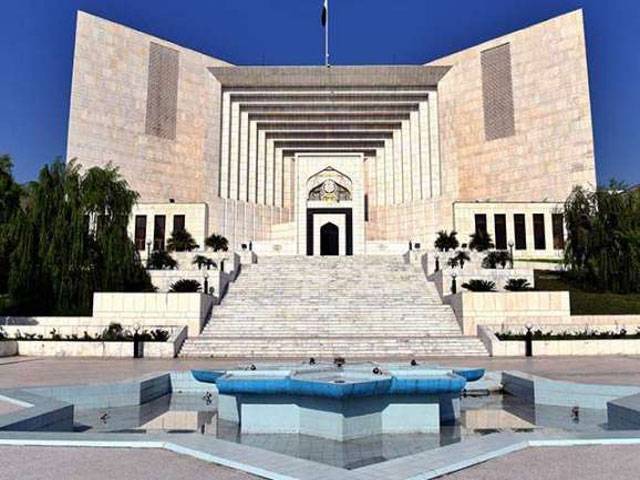ISLAMABAD - The Supreme Court of Pakistan Thursday dismissed all the appeals and petitions of industrial and commercial entities and held levy imposed under Gas Infrastructure Development Cess (GIDC) Act, 2015 is in accordance with the provisions of the Constitution.
In this case, the apex court announced the judgment with majority of two to one and Justice Mushir Alam and Justice Faisal Arab agreed that the levy imposed under Gas Infrastructure Development Cess Act, 2015 is in accordance with the Constitution but Justice Mansoor Ali Shah did not concur with them.
In a separate note, Justice Mansoor wrote; “I do not agree with the reasoning and conclusion of the Majority Judgment. I look at the issue somewhat differently. The principal question that concerns me is whether a fiscal levy imposed for a service to be rendered – a service dependent on the completion of long-term multinational infrastructural projects tied to the vagaries of international politics, exist without a reasonable timeline? Is reasonable time, therefore, an essential constituent of quid pro quo? Can a fee levying legislation, resting on reciprocity, impose a one sided obligation on the gas consumers to pay the levy while providing no timeline nor any consequences for failure to deliver the proposed service?”
A three-member special bench after hearing petitions of various textile mills, cotton mills, sugar mills, ceramics companies, chemicals, CNG filing stations, Match factories, cement companies and aluminum industries regarding GIDC levy for two weeks on February 20, 2020 had reserved the judgment, which was announced in the open court on Thursday.
The judgment noted that Rs295 billion had already been collected towards Cess-revenue and together with the outstanding amount the total sum by the end of this month (August) would be in the vicinity of seven hundred billion rupees, which was more than what was the estimated cost of the projects mentioned in Section 4 of the GIDC Act, 2015.
It added that from the date of this judgment (13th August), we restrained the Federal Government from charging Cess which power of the Federal Government should remain suspended until the Cess-revenue collected and that which was accrued so far but not yet collected was expended on the projects listed in Section 4 of the GIDC Act, 2015.
It also said that in the remaining period of the financial year 2020-21 while considering fixation of sale price of CNG, OGRA should not take into consideration the element of Cess under GIDC Act, 2015 as one of the cost of sale. The apex court stated that as all industrial and commercial entities which consumed gas for their business activities passed on the burden to their customers / clients, therefore all arrears of ‘Cess’ that had become due up to July 31, 2020 and had not been recovered so far should be recovered by the Companies responsible under the GIDC Act, 2015 to recover from their consumers.
It maintained that however, as a concession, the same be recovered in twenty-four equal monthly installments starting from August 1, 2020 without the component of late payment surcharge. The late payment surcharge should only become payable for the delays that might occur in the payment of any of the twenty-four installments.
“In case no work is carried out on North-South pipeline within the prescribed time and for laying any of the two other major pipelines (IP and TAPI) though the political conditions become conducive, the purpose of levying Cess shall be deemed to have been frustrated and the GIDC Act, 2015 would become permanently in-operational and considered dead for all intents and purposes,” the court said.






